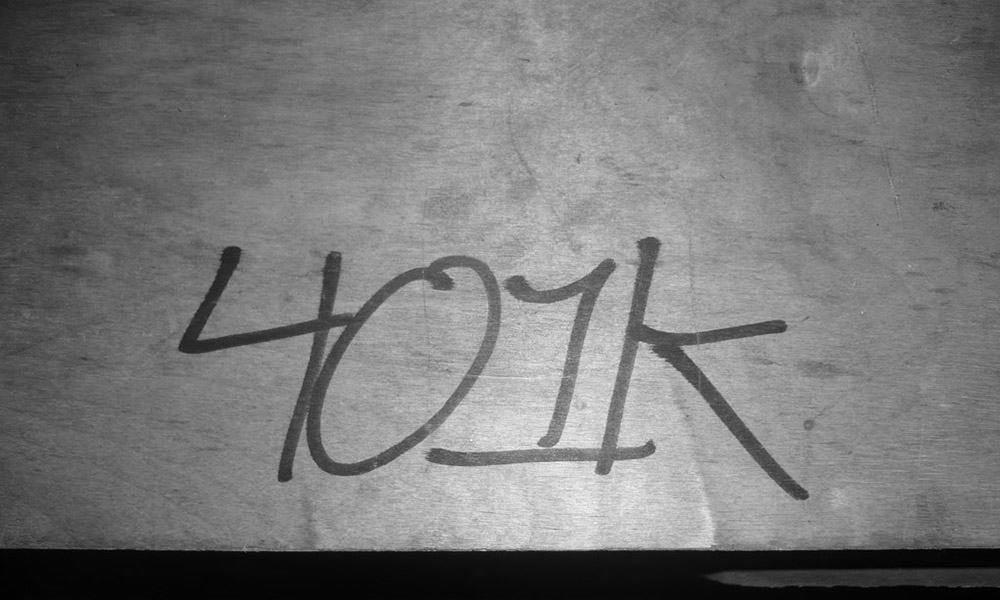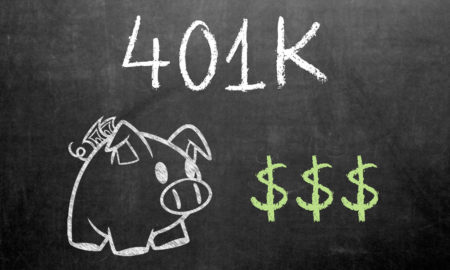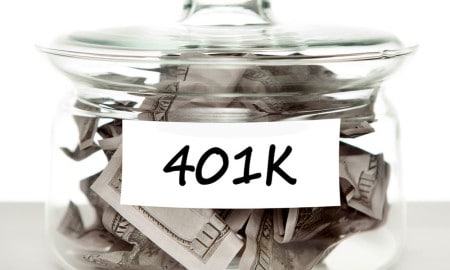

401(k)s are the retirement account that Americans are most familiar with. Employers offer 401(k)s as a benefit to employees, who can have money sent to the account straight from their paycheck.
As an incentive to save, the government allows savers to deduct 401(k) contributions from their income when calculating taxes. How much you can save will depend on your income.
Some employers use the quality of their 401(k) as a way to draw employees in and keep them with the company. One tool they use is 401(k) matching.
What is 401(k) Matching?
401(k) matching is when your employer makes contributions to your 401(k) on your behalf. It is called matching because the contributions your employer makes are based on employee contributions i.e. the contributions you make.
For example, you employer can offer a 100% match on up to 5% of your income. That means, for every dollar you contribute to your 401(k), up to 5% of your paycheck, your employer will also contribute one dollar.
100% Match on 4% of income at $50,000 salary.
| Your contribution | Employer’s contribution |
| $500 | $500 |
| $1,000 | $1,000 |
| $2,500 | $2,000 |
| $5,000 | $2,000 |
Once you contribute up to the matching limit, which in this example is 5% of your income, your employer stops contributing, but you can continue to contribute. That means that you want to contribute up to the matching limit if at all possible, to get the most value out of the match.
Employer matching plans can get complicated depending on your employer. Some employers offer graduated matching tiers, such as 100% match on the first 4% of income and a 50% match on the next 4%, giving you a 6% contribution if you make an 8% contribution.
100% Match on 3% and a 50% match on the next 3% of income at $50,000 salary.
| Your contribution | Employer’s contribution |
| $500 | $500 |
| $1,000 | $1,000 |
| $2,500 | $2,000 |
| $5,000 | $2,250 |
Read the specifics of your plan to learn exactly how much your employer will contribute and how much you need to contribute to max out the benefit.
How much do companies typically match on a 401k?
The average 401(k) matching offered by employers is 2.7% of the employee’s salary and the most common matching rate is 50%.
Why do employers match 401(k)s anyways?
401(k)s and other defined contribution plans are more cost-effective for the employer than managing a traditional pension plan funded entirely by the company, and are also preferred by most private-sector employees.
While an employer match is not required by the IRS, this “company match” can be a selling point for recruiting employees – particularly if competing firms are offering a generous 401(k) matching plan.
Employers also get tax benefits for contributing to 401(k) accounts – employer matches can be deducted on their federal corporate income tax returns, and they’re often exempt from payroll taxes and state taxes as well.
What is a good 401k match?
401k matching policies amongst different employers can be very inconsistent.
According to the BLS, only 56% of employers even offer 401(k) plans, and among those – 49% match 0%, 41% will offer a match equivalent to 0-6% of the employee’s salary, and 10% will offer a match of 6% or more.
So if you have a employer that matches 6% or more of your 401(k) contribution, that is extremely good! You should make sure to take advantage of this opportunity to pad your retirement savings.
Do 401(k) Contribution Limits Include the Employer Match?
Employees are allowed to contribute a maximum of $19,500 to their 401(k) in 2020, or $26,000 if you’re over 50 years of age. The good news is employer contributions do not count towards the $19,500 limit. Instead, employer matching contributions are subject to the lesser known $57,000 limit on all contributions made to a 401(k) account ($63,500 for those age 50+).
Your 401(k) can receive no more than $57,000 in contributions in a single year, whether those contributions are made by you or by your employer. That limit is three times the contribution limit for employees, so your employer would need to offer a 200% 401(k) employer match on all contributions you make for you to reach the limit.
The $57,000 limit mostly affects small business owners and the self-employed who pay themselves and make retirement contributions as both the employee and the employer. Most people who work for regular companies will never have to worry about the $57,000 overall limit.
What Does “Vesting” Mean?
Even if your employer makes a matching contribution to your 401(k), that money may not be yours. Many employers use their 401(k)s to retain talent, so they include a vesting period for matching contributions. Once the vesting period ends, the money becomes fully yours.
Any money your employer contributes is kept separate from your contributions. Depending on your 401(k) plan, employer contributions can vest all at once or slowly over time. Once you’ve finished the vesting period, all previous and future contributions are vested and become yours immediately.
When considering a job change, take into account any money you may be leaving behind because it has not vested yet – check your employer’s vesting schedule for more details.
For more on 401(k) vesting, check out our article detailing how 401(k) vesting works.
How Can I Take Advantage of 401(k) Matching?
401(k) matching is designed to be easy to take advantage of. All you have to do is make contributions to your 401(k) and you’ll get extra money from your employer automatically.
If you want to max out the benefit, make sure that you’re contributing enough to get the full match that your employer offers. If you get a 50% match, that’s like earning a 50% return on investment immediately and with no risk. You’ll be hard-pressed to find a better deal elsewhere.
Even if your employer’s 401(k) has high fees, it is worth contributing up to the matching limit for the immediate return. Once you’ve hit the matching limit you can consider whether other savings strategies, such as opening an IRA may be better for you.
If you’re concerned about how fees will affect your retirement plans, take a look at Personal Capital’s Retirement Fee Analyzer.
401(k) matching is like getting more money from your employer for free. Taking full advantage of this benefit can make a huge difference in the size of your nest egg and the security of your retirement.
You can run your own numbers on InvestmentZen’s 401(k) calculator to see how 401(k) matching can help your retirement.
Photo credit: jauretsi | Flickr



















